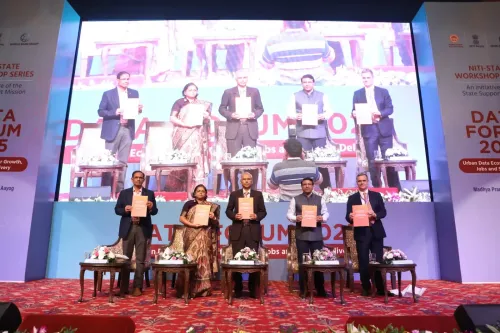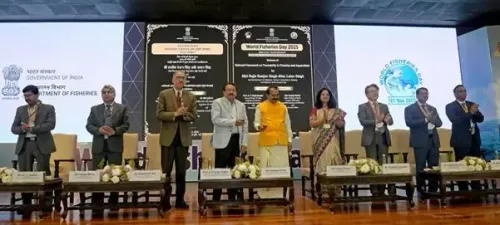Are More Indians Investing in Equities Due to Financialization of Household Savings?

Synopsis
Key Takeaways
- Household savings in India are increasingly moving towards equities.
- Public sector banks are experiencing stable growth.
- Incremental credit share of PSBs has increased significantly.
- The MSME sector is a crucial component of credit growth.
- The trend indicates a shift in investment strategies among households.
New Delhi, June 30 (NationPress) The financialization of household savings in India is experiencing remarkable growth, with the percentage of equities in household savings having surged from 2.5 percent in FY20 to 5.1 percent in FY24, according to a report by SBI Research released on Monday.
The Indian credit market is undergoing structural changes, reflecting significant shifts in headline bank credit growth, which may obfuscate more than it clarifies, the report indicated.
Going forward, it is crucial to monitor the sources of credit origination, particularly through bank deposits, which primarily consist of household savings, the report added.
As per the findings, public sector banks (PSBs) are projected to display stable growth of 12.2 percent in FY25, compared to a growth rate of 13.6 percent in FY24.
Notably, the share of PSBs in incremental credit has escalated to 56.9 percent in FY25, up from 20 percent in FY18.
“The government’s 4R’s strategy of recognition, resolution, recapitalization, and reforms has yielded substantial benefits. The asset quality of the banking sector has now dropped to a record low of 2.6 percent in H1 FY25, down from 11.5 percent in FY18,” the report stated.
PSBs' share in outstanding credit has enhanced to 52.3 percent in FY25, marking a recovery after a 14-year decline that saw it fall to 51.8 percent in FY24 from 75.1 percent in FY10.
Analysis of sectoral credit growth reveals a softening trend, particularly due to a slowdown in credit growth for the services sector and agriculture and allied activities.
The share of personal loans in incremental credit growth has decreased to 37 percent in FY25, down from 43 percent in FY24, while the industrial share has risen to 17 percent in FY25, compared to 11 percent in FY24.
“An important factor in credit growth is the credit to the MSME sector, which has surged by 17.8 percent year-on-year,” noted Dr. Soumya Kanti Ghosh, Group Chief Economic Advisor at SBI.
“Interestingly, MSMEs heavily rely on large corporations through both backward and forward integration. Consequently, the activity levels of MSMEs could serve as an indicator of corporate activity across various financing channels—both banks and non-banks,” he remarked.
Moreover, private credit deals amounted to Rs 774 billion in FY24, reflecting a growth of 7 percent over CY23, addressing the diverse financing needs of various sectors within India Inc. through customized financing solutions primarily via Alternative Investment Funds (AIFs), while the issuance of Non-Convertible Debentures (NCDs) continues.









